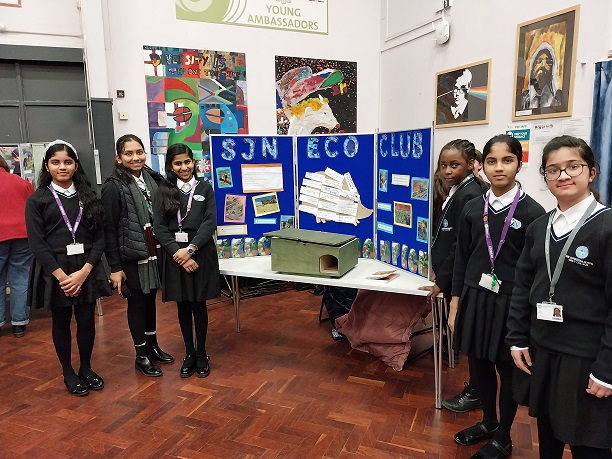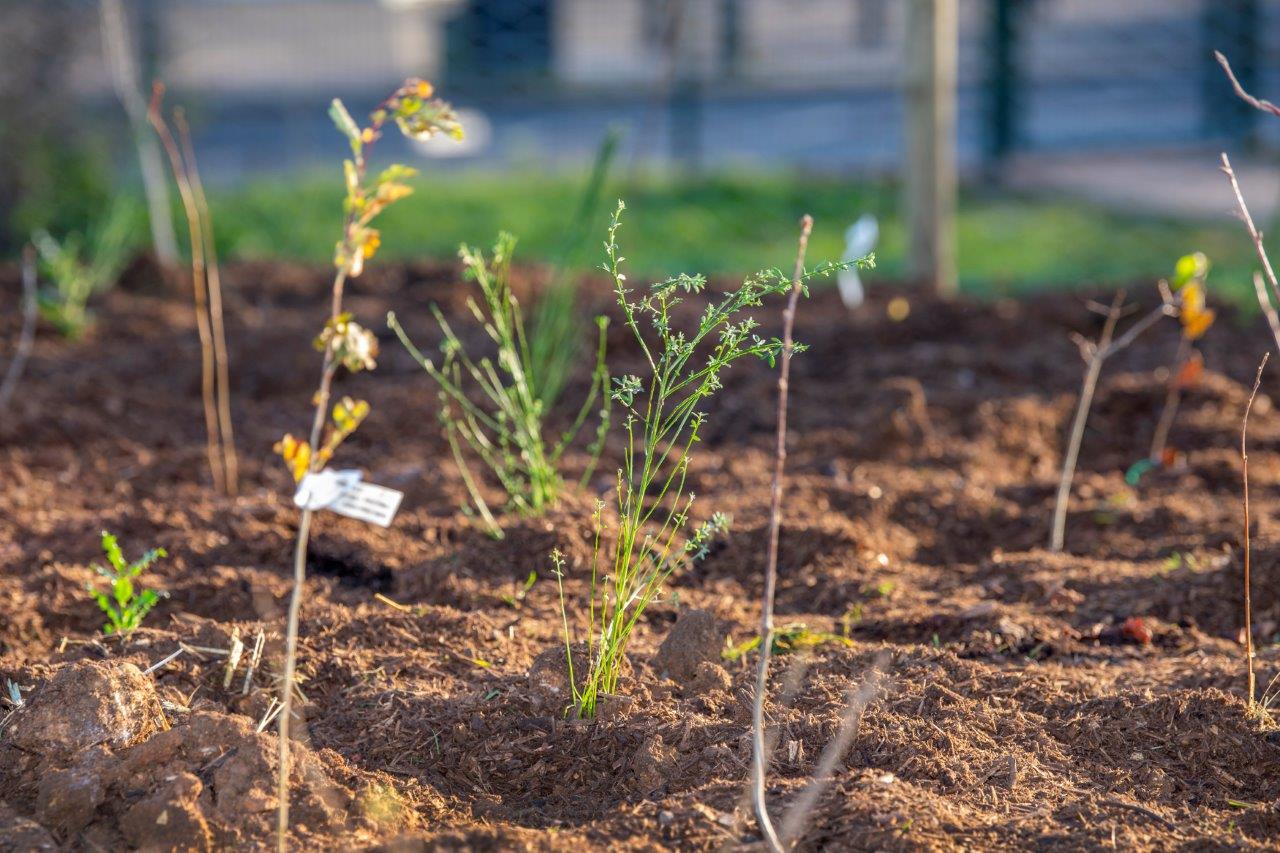Kate White is a geography teacher who runs the Eco Club at Sir Jonathan North Girls’ College in Leicester. We spoke to her about her experiences of engaging secondary students in climate change.

What is your role?
I teach geography, and I’m also the lead teacher for student voice, which basically means I run the student council. About seven years ago I started the Eco Club, and we’ve had an Eco-Schools green flag for a couple of years now.
Tell us about your school.
We’ve got roughly 1,200 students. It’s a non-selective all-girls secondary, aged 11 to 16. We’re the only multifaith girls’ school in Leicestershire.
Why is sustainability important to you?
It’s one of the biggest problems facing us at the moment, so it’s absolutely vital that the students know about it and also that they can be proactive. I think quite a lot of them are stressed about the state of the world, so it gives them an opportunity to actually do something practical. It helps them to develop leadership skills and teamwork skills, which is really positive.
As a trust we are pushing Eco-Schools across all our schools and really focusing on the power of the students to make a difference.

Have you had any training around sustainability or climate education?
I attended the training by Energy Sparks, the Carbon Literacy one, and then obviously I’ve had all the Eco-Schools ones via the local authority.
What activities have you undertaken at your school?
Our Eco Club meets once a week and over the last couple of years we have undertaken several projects.
We’ve got a pond, and we’ve been replanting it and making it more nature-friendly. We’ve done lots of litter picks round school, but also in the local area. And last year we got some funding to plant an orchard. We have nine trees plus raised beds, and we also planted some trees on the field.
We’ve been planting bulbs and pollinator plants, that sort of thing. We’ve been making artwork out of plastic and dresses out of crisp packets.
And this year, we’re doing a hedgehog project with WWF. We have a hedgehog house and hedgehog training and we’ve made hedgehog pledges. We went to a local community evening at the school next door to raise awareness with the local community. Our students had a stand and they spoke to people about their project.
We have a common curriculum across the trust schools, so we’ve helped to design that and we’ve contributed to it. We do climate change in Year 7 and Year 9 and it’s also in the geography GCSE, so we do cover it quite a lot, which I think is very important.

How do you decide what projects to take part in?
I basically let the students choose what they want to focus on and then look for projects that work with that. So for example, this year the students wanted to do something about healthy living and food, and then I saw from the Eco-Schools newsletter that there was the mealbarrow competition for growing food in a wheelbarrow. We haven’t done that before, but because it fits with what they wanted to do, I’ve signed us up for that.
Over the years we’ve done different projects. When we did the Keep Britain Tidy litter pick, they gave us loads of litter pickers. So now whenever they want to go and do a litter pick, we just go off and we’ve got all the kit to do it. And with the orchard, we got funding for that and it also gave us trowels, so we can carry on with the planting projects over time.
What benefits have you seen?
It’s been really positive. It does really help to empower the students. It builds their confidence and teamwork. It gives them a chance for a bit of leadership.
They start off in Year 7 just wanting to make posters, and as they get older, they start leading the projects and coming up with their plans, doing assemblies and spreading the message. Even though we’re a little voluntary club, it’s probably the main one that everybody knows about at school, and it does give them so many different life skills.
It helps them make a real difference, and they all talk about it in their college applications and how it helped them grow in confidence. They are definitely worried about the state of the world, so I think it does give them a chance to feel they are doing something, however small. I think it’s good for their mental health in that way. And it’s just nice to get outside as well.

What barriers have you faced and how have you overcome them?
Time is always tricky. Whenever I’ve got meetings or a parents’ evening we can’t do the club.
Sometimes it’s budget, but that’s when things like Leicester Eco-Schools are really good because they apply for grants and get funding for projects, and then you can sign up for those. I think if I wasn’t in Leicester, it might be trickier because that team is so good and they send newsletters all the time with different things that are going on. And then because I’ve done certain things, sometimes they get in touch and say, ‘Would you be interested in this project?’
For example, last year we did the Saving the Saffron Brook project, which was the money for the orchard and bug hunts and various ponds and things like that. But that fed into them getting back in touch, saying we’re now doing this hedgehog project, would you be interested in doing that? And then they said, the swift charity has got these bird boxes and bat boxes, would you be interested in that? So it all feeds into each other which is really good.
The academy trust is really supportive too. They want to make it trust-wide. We had our first meeting last month for the Eco-School leads across the trust, and there’s only a couple of schools that don’t already have an Eco Club. The trust wants to get those up and running, and we’re having an eco rally day in June with lots of different activities that the students would complete. They want all the schools in the trust to get a green flag award, so they’re getting on board.

What makes a successful project?
In terms of student engagement, it’s topics that they’re passionate about, things that they enjoy. They like it when it’s practical and out of the classroom. They like it when we have outside experts coming in. It makes them feel valued. And if they see those people regularly, that’s good for them. They can get a nice relationship going.
Do you think the approach you’ve taken would work in all schools?
Yes, as long as you’ve got a supportive school and as long as you’ve some people who can help you out with projects or some people that can point you in the right direction of projects. The Eco-Schools website has ideas of what you can do. So if you’re a bit stuck on a topic, you can click on there and it’s got lots of ideas.
When I first started Eco Club, it was a bit ad hoc, we only met up once a half term and we just didn’t get anything done. Now, by coming in every week, we’re always chipping away at projects and it means that you get your regulars that keep coming. I really enjoy running it, and they’re such nice, enthusiastic students as well. They’re wonderful.


